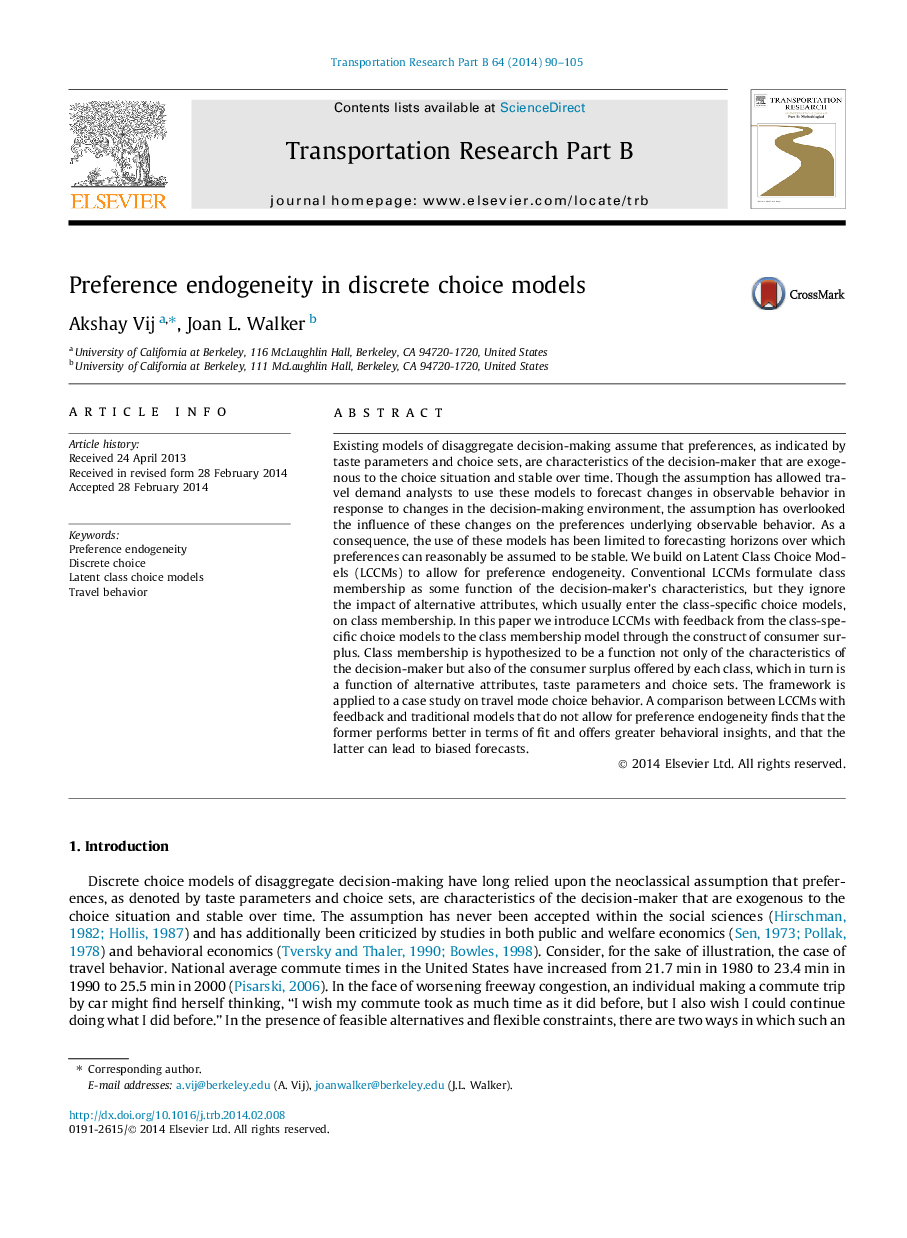| Article ID | Journal | Published Year | Pages | File Type |
|---|---|---|---|---|
| 1131916 | Transportation Research Part B: Methodological | 2014 | 16 Pages |
•We propose a new latent class choice model framework that captures preference endogeneity.•The formulation allows a decision-maker’s preferences to be a function of the decision-making environment.•The framework is tested using travel mode choice data from the Bay Area Travel Survey (BATS) 2000.•Estimation results identify six segments in the sample population that differ in terms of their preferences.•The distribution of individuals across segments is shown to be sensitive to changes in level-of-service attributes.
Existing models of disaggregate decision-making assume that preferences, as indicated by taste parameters and choice sets, are characteristics of the decision-maker that are exogenous to the choice situation and stable over time. Though the assumption has allowed travel demand analysts to use these models to forecast changes in observable behavior in response to changes in the decision-making environment, the assumption has overlooked the influence of these changes on the preferences underlying observable behavior. As a consequence, the use of these models has been limited to forecasting horizons over which preferences can reasonably be assumed to be stable. We build on Latent Class Choice Models (LCCMs) to allow for preference endogeneity. Conventional LCCMs formulate class membership as some function of the decision-maker’s characteristics, but they ignore the impact of alternative attributes, which usually enter the class-specific choice models, on class membership. In this paper we introduce LCCMs with feedback from the class-specific choice models to the class membership model through the construct of consumer surplus. Class membership is hypothesized to be a function not only of the characteristics of the decision-maker but also of the consumer surplus offered by each class, which in turn is a function of alternative attributes, taste parameters and choice sets. The framework is applied to a case study on travel mode choice behavior. A comparison between LCCMs with feedback and traditional models that do not allow for preference endogeneity finds that the former performs better in terms of fit and offers greater behavioral insights, and that the latter can lead to biased forecasts.
